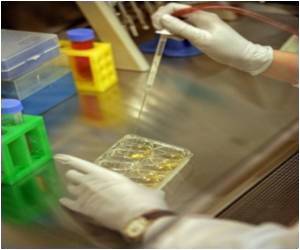A personalized therapy that will fool cancer cells into killing themselves has been developed by a Wayne State University School of Medicine researcher.

The unique concept, patented by the university, was successfully demonstrated on melanoma cells that are resistant to routine treatments such as chemotherapy or radiotherapy.
The success of the therapy in killing melanoma suggests a similar outcome in treating other cancers.
Rosner modified the genetic code for DNase1, a highly potent DNA-degrading enzyme, and altered its genetic composition by deleting a part of the code, mutating another part and adding an artificial piece of code.
Through these changes, the altered DNA program is translated into a modified protein. In contrast to the natural protein, the modified protein will not be eliminated from the cancer cell, will resist deactivation by cell inhibitors and will gain access to the cell's nucleus. he cancer cell, unaware of the destructive potential of the modified code, translates it into a protein that evades the cell's defence mechanisms and enters the nucleus.
In the nucleus, the protein damages DNA by chopping it into fragments without the need for other medications.
Advertisement
This mode of cancer cell elimination leaves no residual debris to alert the immune system to kick in, essentially committing 'the perfect crime', said Rosner.
Advertisement
The fact that this therapy does not require participation of the patient's immune system to kill cancer cells is a big advantage over other newly developed technologies, such as the cancer vaccine.
Patients with the same cancer type vary in their response to identical treatment because the biological characteristics of the same cancer type usually differ between patients.
As a result, the medical field strives to develop treatments that can be adjusted to each patient.
The structure of Rosner's technology contains Lego-like pieces that together form a genetic construct.
Each piece can be replaced by one of several other genetic pieces that perform the same task, but differ slightly in their genetics.
The multiple options available for each genetic piece will allow the physician to tailor the finalized treatment to each patient based on the unique characteristics of his or her cancer.
In this way, the new technology is a 'true personalized therapy', according to Rosner.
Details of the novel technology appear in the January 14 online edition of Cancer Gene Therapy, a Nature Publishing Group journal.
Source-ANI














